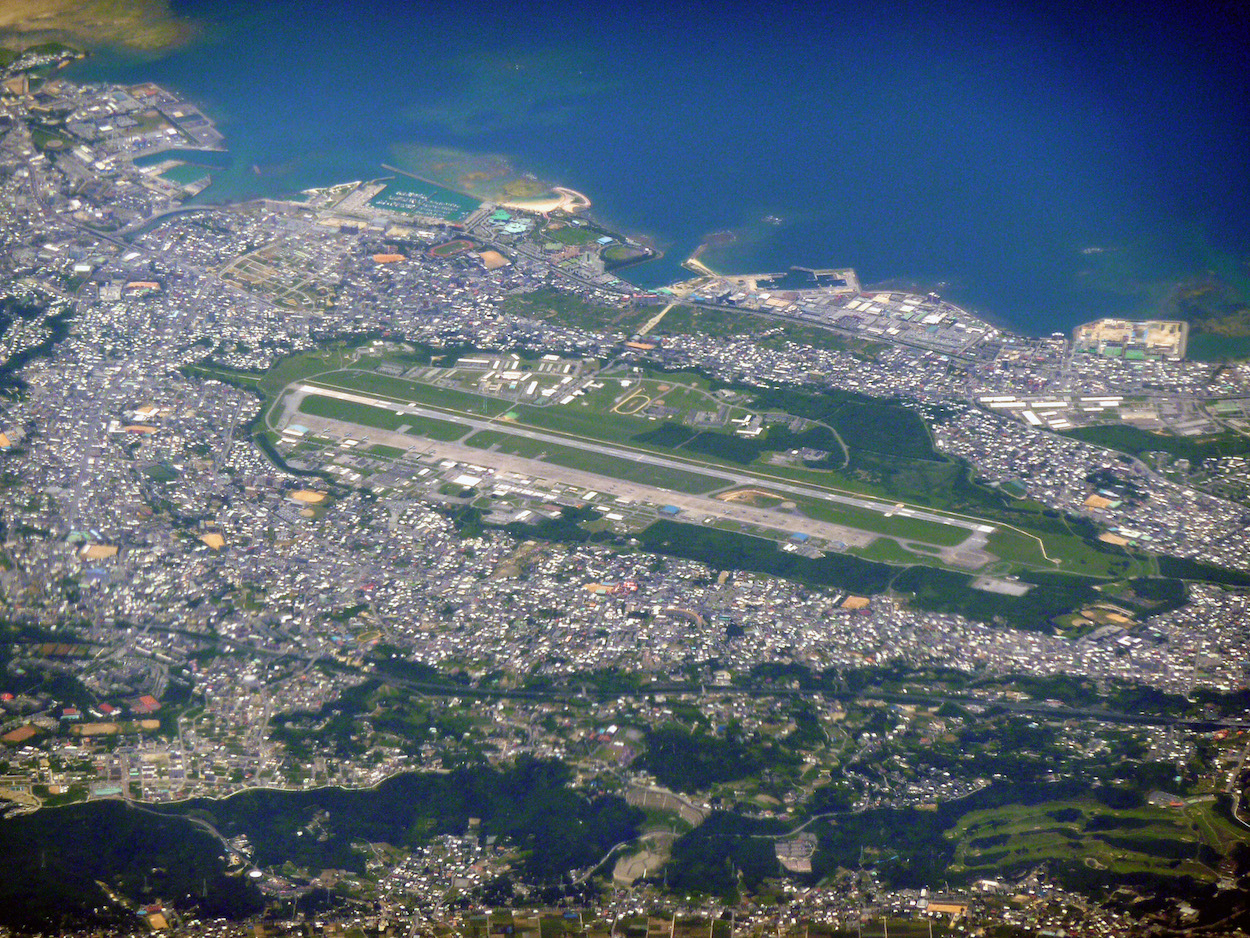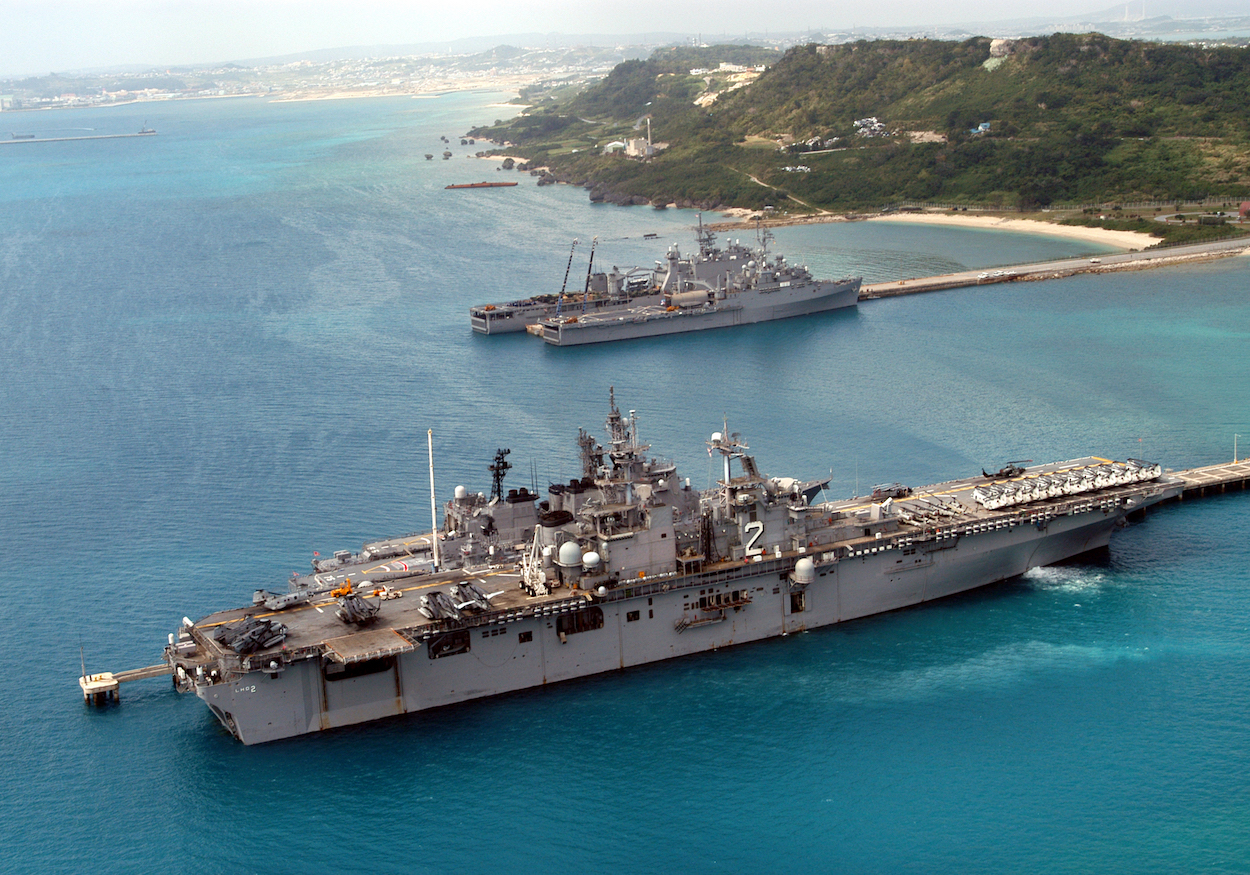by Brian Hioe
語言:
English
Photo Credit: US Navy
SOME IN TAIWAN have taken former ambassador John Bolton’s recent editorial in the The Wall Street Journal suggesting that America relocate its bases from Okinawa to Taiwan as cause for celebration, given that Bolton is an individual seen as influential on the Trump administration and one which many expect to eventually be appointed to some position within the administration. As Bolton notes, this could be a way for America to step up support of Taiwan and to counter growing Chinese influence in the Asia Pacific.
However, it is foolish for anyone to think that Bolton’s comments are indicative of the Trump administration’s strategic thinking, with Bolton acting as the newly inaugurated president’s mouthpiece. For one, why did Bolton publish this editorial on January 16th, just four days before Trump’s inauguration? Why did he not do so earlier?
Bolton has in the past called for a stronger American stance against China and such views on his part are not surprising. But very likely, Bolton’s editorial is a shot fired across the bow in the internal struggle between different internal factions of Trump supporters between those who call for increasing American commitments in the Asia Pacific to counter China and those who call for complete withdrawal from the Asia-Pacific. Indeed, as illustrative of the divided nature of the political forces which have arrayed themselves behind Trump, Bolton’s editorial comes at the same time as Trump supporter Mike Rogers, a member of the House of Representatives, has introduced a bill into Congress calling for American withdrawal from the United Nations. Or, Bolton’s editorial may be a trial balloon, aimed at seeing what public opinion on such a move would be.
 John Bolton. Photo credit: US State Department
John Bolton. Photo credit: US State Department
Yet, rather than treat the idea as a serious one because it comes from a key advisor of the Trump administration, Taiwanese should consider the urgings of American hawks as Bolton and others with a degree of skepticism. As Bolton notes in his editorial, from a geopolitical point of view, it does in fact make sense for America to relocate its bases to Taiwan from Okinawa given that Okinawa is actually geographically closer to Taiwan than it is to the rest of the Japanese islands.
However, such a move could dangerously provoke China, which continues to view Taiwan as part of its integral territory and may take such a move by the US as tantamount to a declaration of war. If China is still currently far from being able to wage naval war with America on equal terms, it is also quite unlikely that America is committed enough to the Asia Pacific that it would wage war with China. As such, Bolton’s idea may not actually be a realistic one. The fact that a Trump administration advisor would suggest it may illustrate the incoherent nature of the Trump administration’s geopolitical thinking on the Asia Pacific rather than a bold declaration of future policy.
While America previously had bases in Taiwan, they were withdrawn from Taiwan after America broke diplomatic relations with the Republic of China in favor of acknowledging the People’s Republic of China in 1979. The history of American military presence in Taiwan still has significant marks upon society, particularly in regards to the early introduction of western forms of popular culture into Taiwan, such as rock music. America currently retains bases in a number of Asia Pacific countries including Japan, South Korea, and the Philippines. In all, America has close to 800 military bases in more than 70 countries worldwide.
 Futenma Air Base in Ginowan, Okinawa. Photo credit: Sonata/WikiCommons
Futenma Air Base in Ginowan, Okinawa. Photo credit: Sonata/WikiCommons
Where many Taiwanese welcome American bases as a way to defend China, one imagines that if American bases were to come to Taiwan, they would prove less than popular. American bases worldwide have proven unpopular with the resident populations of the countries they are based in, because of the pattern of American servicemen committing crimes against local populations, including murder, rape, and vehicle accidents, destruction of local environment caused, noise pollution from equipment and training exercises, and significant disruption of civilian life for locals living around bases. Over time, American bases also come to be thought of as incursions into the sovereignty of the nations in which they are built, even if many would currently welcome American bases in Taiwan as a way to fend off China. Large-scale protests against American bases in Japan and South Korea, despite the usefulness of American bases in warding off the threats of China and North Korea, are telling.
This is not a moral judgment on American bases but simply the facts of what reactions to American bases worldwide has been, as outlined in a systematic study of reactions to American bases worldwide such as David Vine’s magisterial Base Nation, a work whose recent translation into Chinese is quite timely. Some left-leaning veterans groups account crimes committed by American servicemen in foreign bases to an “us versus them” mentality taught to soldiers through training and prevalent misogyny in military culture, as seems backed up by leaked training materials from American bases in Okinawa.
One can quickly imagine American bases having a mixed reception after some time in Taiwan. Actually, Bolton’s suggestion to relocate American bases to Taiwan probably is also with awareness that American bases in Okinawa are unpopular in Japan due to protests against American bases by Okinawans. Okinawans see American bases as an incursion into their sovereignty by both America and the more central Japanese islands. Okinawa has a different sense of identity from the rest of Japan due to the late addition of Okinawa to the nation of Japan, and a period after World War II in which Okinawa was not governed by the Japanese government but by the American military. Okinawa, which also has an independence movement, should be an example for Taiwan of the potential outcome for Taiwan if it allows American bases on its shores.
 White Beach Port in Okinawa. Photo credit: US Navy
White Beach Port in Okinawa. Photo credit: US Navy
Either way, when it comes to possibility of American bases being welcomed into Taiwan as a way to keep China at bay, Taiwanese need to consider how this returns to the fundamental relationship between Taiwan and the United States. American bases in Taiwan would be to subordinate Taiwanese sovereignty to American sovereignty, but some groups in Taiwan have even gone so far as to call for Taiwan to become the 51st state of the United States as a way to fend off China, the most famous of which are the Taiwan Civil Government and Club 51. Likewise, historically, Taiwan has banked on the Republican Party for support, despite its right-wing nature and its increasing extremism in recent years. This has been taken to the its logical conclusion with the election of Donald Trump, a Republican president that some individuals see as a right-wing proto-fascist.
In calls for American support of Taiwan, Taiwanese have often not thought through how closer alliance with America has both positive and negative outcomes. America could fend off China, to be sure, but America is also happy to use Taiwan as a geopolitical chess piece when needed, and through arms sales and trade deals, America uses uncertain security promises as a way to extract economic resources from Taiwan.
Ultimately, Taiwanese should be the ones to decide their country’s own future, and in that Taiwan should not be subordinate to either China or America. But, apart from leaping at unlikely phantom possibilities such as that of US bases relocating from Okinawa to China, Taiwanese must kept in mind the trade-offs of a closer relationship with the United States and the grimmer realities of American bases on Taiwanese soil.

